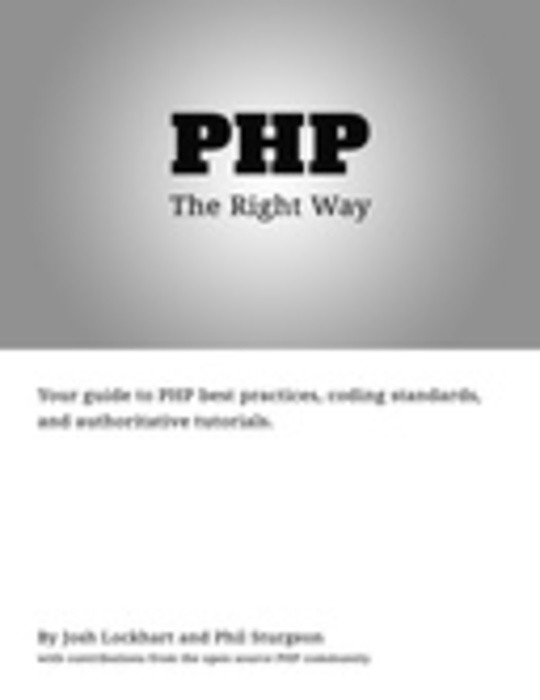
GNU make: A Program for Directing Compilation
Free
Description
Contents
Reviews
Language
English
ISBN
1-882114-83-3
Overview of make
How to Read This Manual
Problems and Bugs
An Introduction to Makefiles
What a Rule Looks Like
A Simple Makefile
How make Processes a Makefile
Variables Make Makefiles Simpler
Letting make Deduce the Recipes
Another Style of Makefile
Rules for Cleaning the Directory
Writing Makefiles
What Makefiles Contain
Splitting Long Lines
What Name to Give Your Makefile
Including Other Makefiles
The Variable MAKEFILES
How Makefiles Are Remade
Overriding Part of Another Makefile
How make Reads a Makefile
Secondary Expansion
Writing Rules
Rule Syntax
Types of Prerequisites
Using Wildcard Characters in File Names
Wildcard Examples
Pitfalls of Using Wildcards
The Function wildcard
Searching Directories for Prerequisites
VPATH: Search Path for All Prerequisites
The vpath Directive
How Directory Searches are Performed
Writing Recipes with Directory Search
Directory Search and Implicit Rules
Directory Search for Link Libraries
Phony Targets
Rules without Recipes or Prerequisites
Empty Target Files to Record Events
Special Built-in Target Names
Multiple Targets in a Rule
Multiple Rules for One Target
Static Pattern Rules
Syntax of Static Pattern Rules
Static Pattern Rules versus Implicit Rules
Double-Colon Rules
Generating Prerequisites Automatically
Writing Recipes in Rules
Recipe Syntax
Splitting Recipe Lines
Using Variables in Recipes
Recipe Echoing
Recipe Execution
Using One Shell
Choosing the Shell
Parallel Execution
Output During Parallel Execution
Input During Parallel Execution
Errors in Recipes
Interrupting or Killing make
Recursive Use of make
How the MAKE Variable Works
Communicating Variables to a Sub-make
Communicating Options to a Sub-make
The --print-directory Option
Defining Canned Recipes
Using Empty Recipes
How to Use Variables
Basics of Variable References
The Two Flavors of Variables
Advanced Features for Reference to Variables
Substitution References
Computed Variable Names
How Variables Get Their Values
Setting Variables
Appending More Text to Variables
The override Directive
Defining Multi-Line Variables
Undefining Variables
Variables from the Environment
Target-specific Variable Values
Pattern-specific Variable Values
Suppressing Inheritance
Other Special Variables
Conditional Parts of Makefiles
Example of a Conditional
Syntax of Conditionals
Conditionals that Test Flags
Functions for Transforming Text
Function Call Syntax
Functions for String Substitution and Analysis
Functions for File Names
Functions for Conditionals
The foreach Function
The file Function
The call Function
The value Function
The eval Function
The origin Function
The flavor Function
Functions That Control Make
The shell Function
The guile Function
How to Run make
Arguments to Specify the Makefile
Arguments to Specify the Goals
Instead of Executing Recipes
Avoiding Recompilation of Some Files
Overriding Variables
Testing the Compilation of a Program
Summary of Options
Using Implicit Rules
Using Implicit Rules
Catalogue of Built-In Rules
Variables Used by Implicit Rules
Chains of Implicit Rules
Defining and Redefining Pattern Rules
Introduction to Pattern Rules
Pattern Rule Examples
Automatic Variables
How Patterns Match
Match-Anything Pattern Rules
Canceling Implicit Rules
Defining Last-Resort Default Rules
Old-Fashioned Suffix Rules
Implicit Rule Search Algorithm
Using make to Update Archive Files
Archive Members as Targets
Implicit Rule for Archive Member Targets
Updating Archive Symbol Directories
Dangers When Using Archives
Suffix Rules for Archive Files
Extending GNU make
GNU Guile Integration
Conversion of Guile Types
Interfaces from Guile to make
Example Using Guile in make
Loading Dynamic Objects
The load Directive
How Loaded Objects Are Remade
Loaded Object Interface
Example Loaded Object
Features of GNU make
Incompatibilities and Missing Features
Makefile Conventions
General Conventions for Makefiles
Utilities in Makefiles
Variables for Specifying Commands
DESTDIR: Support for Staged Installs
Variables for Installation Directories
Standard Targets for Users
Install Command Categories
Quick Reference
Errors Generated by Make
Complex Makefile Example
GNU Free Documentation License
Index of Concepts
Index of Functions, Variables, & Directives
The book hasn't received reviews yet.











